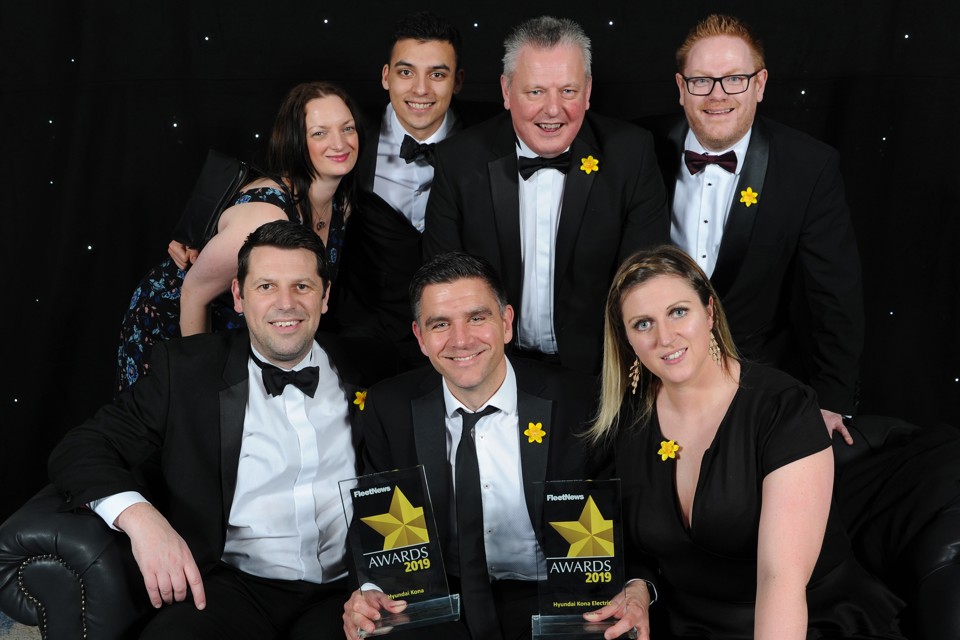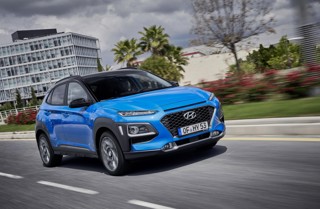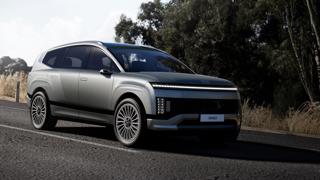Hyundai’s rise from a relatively small value proposition to becoming a major player in fleet has been one of the industry’s success stories.
Last year, it registered 50,571 units in the fleet and business sector – a record for the manufacturer and 56.2% of its total sales – strengthening its position as a top 10 best-selling fleet brand.
Part of this success is down to the breadth and freshness of its model range – the oldest model on sale, the i30, was launched just two years ago – and this has been reflected by the Fleet News Awards. In the past five years, Hyundai has won seven honours. This year, its Kona was named best compact SUV with the Kona Electric taking the prize for best zero emission car.
“The small SUV area is a hugely popular and growing segment, and Kona has been very important for us,” says Michael Stewart, director of fleet at Hyundai.
“Certainly, there is a huge amount of interest in Kona Electric and there is a huge fleet appetite for that car.”
He says the biggest challenge is meeting demand. Hyundai had sold its 2019 allocation by April.
“We were able to ringfence some supply for our corporate customers as a percentage of the overall mix,” he adds.
“Kona Electric has meant we’ve had conversations with large fleet customers that we’ve not had a relationship with before, which has been fantastic, and it has given us an opportunity to talk about the brand, to talk about Ioniq and other products that perhaps meet the alternative fuel requirements for those fleets.
“It’s been great in that regard as a bit of a halo product. I would love to have more, the demand is incredible.
“We are doing what we can to get additional supply so we are constantly in conversation with the factory and our paymasters to get more into the UK.”
Fleet News: What are your ambitions in the fleet sector this year?
Michael Stewart: This year is really about smart growth for us. By this, we mean sustainable, sensible growth so we are reducing some of the tactical, short-cycle business we’ve had in the past and having a real focus on building true fleet (Society of Motor Manufacturers and Traders’ figures show that in Q1, Hyundai’s rental registrations were 4,080, down 22.3% year-on-year).
We will grow true fleet this year, but we are talking hundreds of units, not thousands. Also, Cap Insight figures show our leasing share is somewhere around 1%, and we want to be much better than that. There is maybe one percentage or one-and-a-half percentage points’ worth of growth there and we can achieve that by working more effectively with the market.
FN: How will you achieve this smart growth?
MS: We will do that in a number of ways. The key move, and the first thing I wanted to do when I joined, was to change the structure so we had the right people doing the right jobs all the time. Our management team is now made up of four individuals and three of those are new positions. Tim Wright has joined us from Vauxhall and is our national sales manager, we’ve taken on Gareth Thomas as national contract hire manager and next to them we have Denis Watling who is our planning and operations manager.
Gareth’s role will change the way we are working in the leasing space. He will have a team of two working with him which means he can have far deeper and more meaningful conversations with the funders in the market. Before, we were less able and less agile in this space simply because we had only one staff member covering it. Alongside them, Denis will take on a lot of them administration which had previously fallen to the customer-facing team.
These changes mean we are now structured to take advantage of the opportunities which our great product will give us.
We have also made a significant investment in our white label contract hire programme and will be growing the team to 10 dedicated individuals. They will work with our 163 franchised dealers and we will also be investing more in the types of products and services they are able to offer.
FN: How else will dealers help Hyundai’s fleet offering?
MS: Without our dealers it would be very difficult for us to do anything, so we have two key strategies. In the first instance, all dealers are charged with selling into the small fleet sector and we support that essentially through a bundle of programmes, initiatives and campaigns. In the past we had a fleet business centre programme which saw a number of dealers charged with talking to their local marketplaces, but that wasn’t as effective as maybe it should have been.
From April, we moved to a national fleet centre programme, with 15 larger dealers with specialist capabilities aimed at supporting national fleets.
These will have a dedicated fleet structure, national fleet delivery capability and pre-delivery inspection capacity for more than 1,000 vehicles each.
We now have dealers that have a commitment to fleet at all levels and that gives us a very strong background with which to deliver our fleet promise. We’ve also introduced a new fleet aftersales charter which will offer transparent pricing and processes, as well as guaranteed levels of service to our customers.
FN: What are the changes you’ve made to your dedicated fleet support line?
MS: We already had a service so all our fleet customers and drivers could call for customer support, but we’ve introduced a business back office operation that will be run through ROI, which already works with a number of leading brands in the fleet space. This back office runs a customer relationship management service, so we have specialist individuals who will not only help us deploy our people with customers at the right time, but also help us serve inbound enquiries from our dealers as well as drivers and fleet customers big and small.
FN: Has the newness and breadth of your product range helped win new fleet customers?
MS: It has opened the doors from essential need right through to the alternative fuel side of things. We have all bases covered. It means we can have a much broader conversation with customers and we are able to meet the needs of a lot of different fleets, which is fantastic. The growing electrification of our range – and by that I mean full battery, plug-in and hybrid – also helps us in terms of suitability and meeting any future needs.
Stewart says the changes have meant between 15 and 20 extra people are now working on the brand’s fleet offering, either in back office contact centres or out in the field.
“It is a big investment, but it’s the right investment,” he says. “As a business we’ve spent a lot of money bringing some great cars and great technologies to market, and it would be wrong of us to stop there.
“We are taking fleet incredibly seriously as a brand now and are ready to take our products into the fleet space in a much more determined and measured way, but with sustainability in mind.”






















Login to comment
Comments
No comments have been made yet.